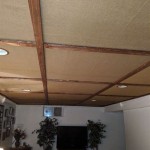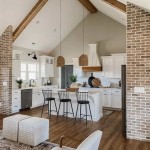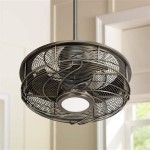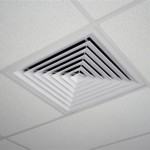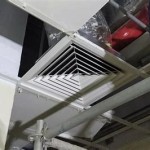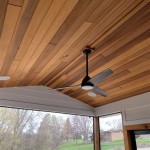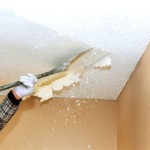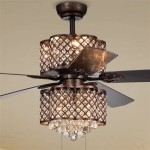What is a Vaulted Ceiling in a House?
A vaulted ceiling is a unique architectural feature characterized by its curved or arched shape that slopes upwards, creating a dramatic and spacious feel in a room. Unlike flat ceilings, vaulted ceilings introduce a sense of grandeur and enhance the overall aesthetic appeal of a space. They can be found in various architectural styles, from traditional to contemporary, and add a touch of elegance and sophistication to homes.
### Types of Vaulted Ceilings:Barrel Vaults:
These vaulted ceilings have a continuous curved shape that resembles a half-cylinder. They extend from one end of the room to the other, creating a smooth and elongated effect.
Groin Vaults:
Formed by the intersection of two barrel vaults perpendicular to each other, groin vaults create diagonal ribs or groins that accentuate the ceiling's curves. They are commonly found in medieval architecture.
Gothic Vaults:
Gothic vaults feature pointed arches and intricate rib patterns that create a soaring and dramatic effect. They are a hallmark of Gothic architecture and add a sense of verticality to spaces.
### Advantages of Vaulted Ceilings:Enhanced Spatial Perception:
Vaulted ceilings visually expand the height and volume of a room, making it feel more spacious and airy. They create a sense of openness and grandeur that can be particularly beneficial in smaller or dimly lit spaces.
Improved Natural Lighting:
The angled shape of vaulted ceilings allows for more natural light to enter through windows or skylights. By directing light upwards, they distribute illumination more evenly throughout the space, reducing the need for artificial lighting.
Aesthetic Appeal:
Vaulted ceilings are architectural showpieces that elevate the style of any home. They add visual interest, texture, and depth to a room, making it feel more inviting and sophisticated.
### Considerations When Choosing a Vaulted Ceiling:Height and Space:
Ensure that the room has sufficient height to accommodate a vaulted ceiling without creating an oppressive atmosphere. Vaulted ceilings can visually reduce the apparent floor space, so consider the overall proportions of the room.
Structural Implications:
Vaulted ceilings require additional structural support to maintain their shape and prevent collapse. Consult with an architect or engineer to determine if your home's structure can support a vaulted ceiling.
Maintenance and Accessibility:
Vaulted ceilings are more difficult to access for maintenance or repairs compared to flat ceilings. Consider the long-term costs and feasibility of maintaining them.
### Conclusion:Vaulted ceilings are captivating architectural elements that add a touch of grandeur and elegance to any home. By creating a sense of spaciousness, enhancing natural lighting, and elevating the aesthetic appeal of a room, they transform ordinary spaces into extraordinary living environments. However, it is important to carefully consider the structural implications, height requirements, and maintenance aspects before implementing vaulted ceilings to ensure they seamlessly integrate into your home's design.

Eight Benefits Of Vaulted Ceilings In A Home Georgia Remodeling

Differences Between Vaulted Ceilings And Cathedral

Vaulted Ceilings 101 The Pros Cons And Details On Installation Bob Vila

Ceilings Vaulted Or Cathedral Drummond House Plans Blog

Vaulted Ceilings Pros And Cons Renovations Roofing Remodeling

Country Kitchen With Vaulted Ceilings 2024 S Ultimate House Hunt

This Lincoln Home Boasts A 20 Foot Cathedral Ceiling Perfect For Fall Foliage Views

Modular Homes With Vaulted Ceilings Windsor Va

What Is A Vaulted Ceiling Pros And Cons Of Ceilings

Vaulted Ceilings 101 History Pros Cons And Inspirational Examples
Related Posts

